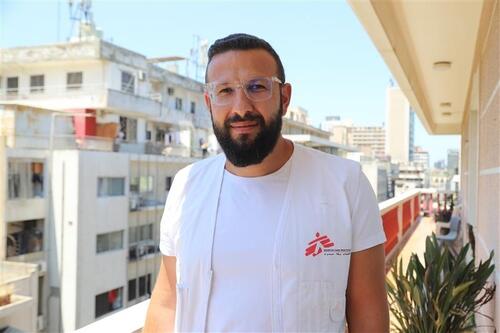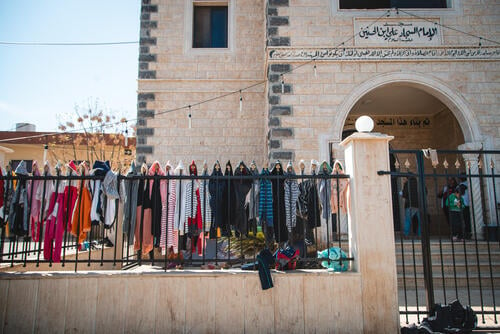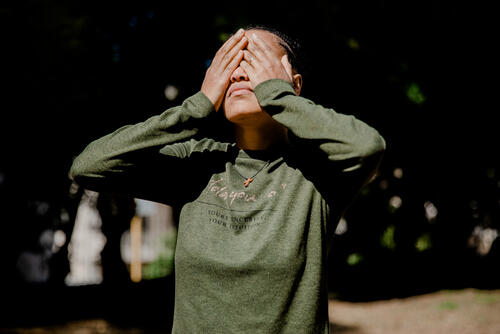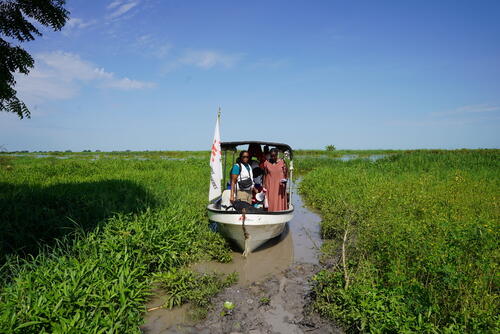
I was born and raised in the Ain El-Hilweh Palestinian refugee camp located in Saida, southern Lebanon. Established following the Nakba in 1948, it’s one of 12 Palestinian refugee camps in the country. It might be the largest one, but it always felt too small. The concrete walls surrounding it block the view of the ‘outside world’.
Like millions of refugees around the world, I did not choose to become a refugee. In 1948, my grandparents were forced to leave Deir El-Asad in Acre, heading for an unknown destination. My father was a young child, and my mother was just an infant. “In three days, the situation will improve, and you will return,” my great grandmother told my grandfather. Why have those three days turned into 77 years?
I, like other Palestinian refugees, have gone through identity crises morphed by accumulating traumas, the first of which stems from growing up away from our homeland. From a young age I knew I was Palestinian, but I didn't know what that actually meant. I have never seen Palestine, I have never stepped on its soil, I have never played in its neighbourhoods. My internal wounds grew bigger when I realised that every “I have never” in these statements was realistically “I will never”. What is a refugee who does not have a homeland to return to?
What is a refugee who does not have a homeland to return to?
Growing up, I wanted to become a doctor and help people who needed medical care. But I soon faced the harsh reality that as a refugee I could not practice medicine in this country. Choosing that path would mean I had leave Lebanon, which I was not willing to do. So, I decided to become a nurse.
When I joined Médecins Sans Frontières (MSF) in 2011, my appreciation for nursing as a profession doubled.
I initially worked with MSF inside Ain El-Hilweh camp for many years, during which our activities took many shapes. Much like other Palestinian camps in the country, Ain El-Hilweh hosts Syrian refugees who fled the war that started in 2011. In 2015, I moved to MSF’s project in south Beirut, where we ran two clinics in the Shatila and Bourj El-Barajneh Palestinian refugee camps.
In 2017 and 2023, several armed clashes broke out in Ain El-Hilweh camp. MSF launched emergency responses in both years, which I joined to support my community. I’ve also taken part in several emergency vaccination campaigns supporting Ministry of Health efforts.
In 2020, we also witnessed the Beirut Port explosion, yet another trauma in the country that shook me just as it shook the city. MSF's emergency response included providing essential healthcare, dressing wounds, ensuring people with non-communicable diseases had their medication, mental health services, and donating clean water, drinking water and hygiene kits. At that point, I was no longer just a refugee supporting refugees.
At that point, I was no longer just a refugee supporting refugees.
In September 2024, Israel escalated its war in Lebanon, which required an emergency response yet again. But this response was not like prior ones; it was much larger as the deadly war retraumatised many Lebanese people, migrants, and refugees alike. MSF went from operating one mobile medical team to 22 teams across Lebanon. We worked hard to provide health care and medication to the displaced wherever they were, in shelters, overcrowded apartments, or even on the streets.
This latest emergency response lasted for two months, but the war did not stop with the declaration of a ceasefire. We are still witnessing Israel bombing in south Lebanon and the southern suburb of Beirut, and Israeli forces are still in Lebanon. We are still supporting people who were displaced and have not found homes or even villages to return to. It pains me greatly for Lebanon to suffer from Israel’s war that steals lives, hope, and memories, just as is happening in Palestine.
I may not know who I am to Lebanon, but I'm certain of what Lebanon is to me. After spending 39 years in this country, it is no longer the closest thing to home: it has become home. It is a homeland I sing for; a homeland I feel a sense of belonging and loyalty to.
I may not know who I am to Lebanon, but I'm certain of what Lebanon is to me.
My family members who emmigrated from Lebanon always ask me why I don't leave it like they did, and I always answer them that this country needs me just as I need it. My mission is to serve the Lebanese society, which includes Lebanese people, migrants, and refugees—the Palestinian and Syrian.
I am raising my 7-year-old son as though he’s a dual citizen, Palestinian on his father's side and Lebanese on his mother's side. But the bitter reality is that my son lacks both citizenships because his mother can’t pass it down to him. No matter how much I try to protect him from the traumas that are passed down through Palestinian generations, trauma is inevitable. But we find ways to cope, in search of belonging. We persevere, and we thrive.
On World Refugee Day, I say: my name is Muhammad Sunallah, and I am a husband, a father, a nurse, and a humanitarian worker. But I am who I am today because I am a refugee.






